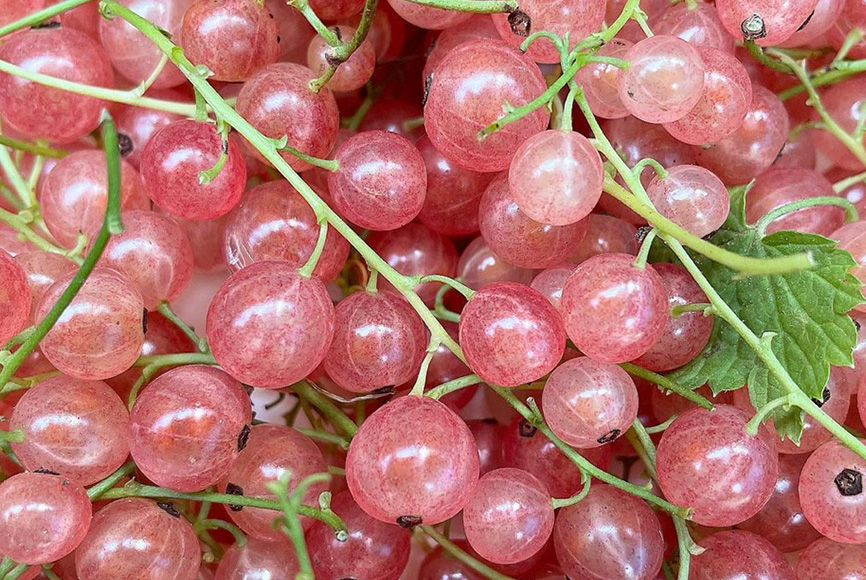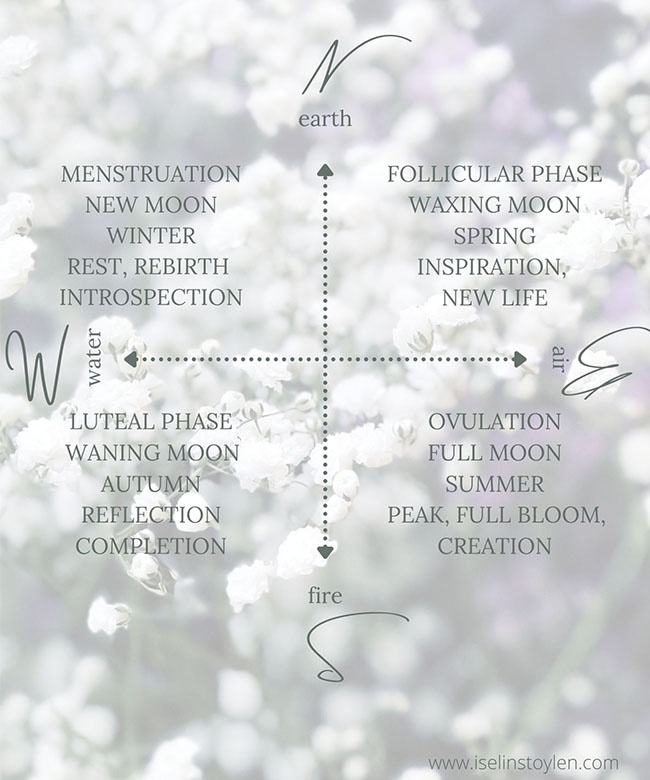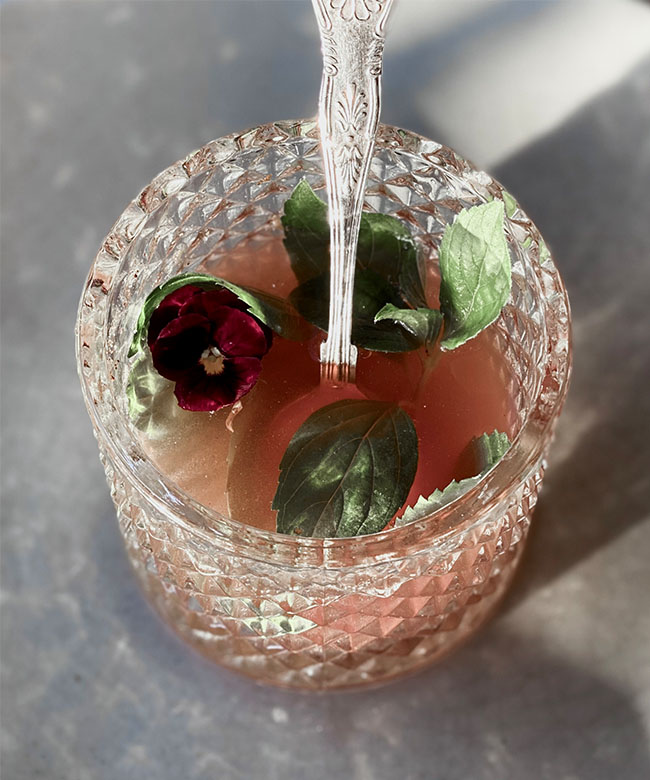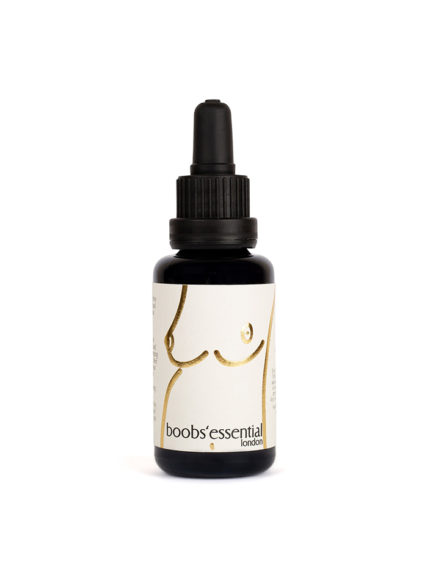
@vivanhoorn
@hannahfaithlord


iselin_stoylen
Wellness
A Natural Approach to Women’s Health and The Menstrual Cycle
In this piece, women’s health counsellor, fertility awarnesss educator, and doula Iselin Amanda Stoylen shares with us some wonderful insights on women’s health. Her mission is to assist women in connecting to their body’s innate wisdom, find harmony and balance within themselves, and support women on the journey of optimising true wellness and health, in all aspects of life. Iselin is also a certified perinatal nutrition educator, childbirth educator, yoga teacher and author. She is based in Byron Bay, where she sees clients, and runs workshops and retreats.
The Wisdom of The Menstrual Cycle
The menstrual cycle is a series of natural changes in the female body. It is an orderly process of preparing women’s bodies for pregnancy. A healthy, well functioning cycle is an indicator of good health in women during their reproductive years. Fertility and health goes hand in hand, and in most cases, the healthier a woman is, the more fertile she will also be. However, fertility and reproductive health stretches far beyond reproduction, or the wish to one day become pregnant (now, or in the near, or distant future). Reproductive health is important to all women, even to women who know they never want to conceive.
The menstrual (hormonal) cycle regulates 150 essential functions in women’s bodies, and is an essential indicator of women’s health and wellbeing. The female cycle is known by the American Committee of Obstetricians and Gynaecologists to be the fifth vital sign of health for women. Just like heart rate, body temperature, respiratory rate, and blood pressure, the menstrual cycle is a central part of health.
As many women have experienced, if your body isn’t functioning normally, neither will your cycle.
The Monthly Journey
During the menstrual cycle an egg develops and is then released from the ovaries, and the lining of the uterus builds up. If a pregnancy doesn’t occur, the uterine lining sheds as a menstrual period, and the cycle starts again.
The female cycle happens as a response to interactions of different hormones produced by the hypothalamus, the pituitary and the ovaries. These hormones are oestrogen, progesterone, follicle-stimulating hormone (FSH), luteinising hormone (LH) and testosterone. The menstrual cycle has two main phases, the follicular or proliferative phase, and the luteal, or secretory phase. Still, we often separate the menstrual cycle into four different phases; follicular, ovulatory, luteal and menstrual. The length of the cycle is defined by the first day of bleeding of one cycle,
to the first day of bleeding in the next cycle. The first phase of the cycle includes both the follicular phase and ovulation, and lasts for 10-16 days for most women. The luteal phase comes right after ovulation, followed by menstruation if a pregnancy didn’t occur. The luteal phase usually lasts for around 12-16 days, and is no shorter than 10 days. Variety of the total cycle length is determined mostly by the follicular phase, which may vary from cycle to cycle. The menstrual cycle varies in length, yet generally, the menstrual cycle lasts from 21-35 days, with a median duration of 28 days.
Ancient Wisdom Meets Modern Medicine
According to Ayurveda and Traditional Chinese Medicine, the time of menstruation is a period of detoxification and purification: physically, mentally and spiritually. It’s a process that supports health, wellbeing and longevity, especially when supported by our lifestyle.
Ayurveda teaches us that menstruation is governed by a natural downward force called ‘apana vaju’. During this phase, you may related to the feeling of needing to withdraw, go inwards and be more still. The energy of a apana vaju is naturally supported by slowing down and retreating.
Women naturally have the ability to connect deeply to the rhythms and cycles of nature, as she is herself cyclical. Our wombs hold the sacred energy of ‘Shakti Prana’, the energy that gives life to all of creation. Shakti Prana is a Divine energy of insight, power, wisdom and carrier of life itself.
In Ayurveda, it is often referred to the time of menstruation as the time of the black moon, or a woman ‘moon’ time. This window is revered to be a sacred time of insight, sight, intuition and clarity. When a woman bleeds, her Shakti Prana is revitalised and cleansed. It is as much a physical detox and purification as it is emotional and mental. This process can be supported and enhanced, or it can be slowed down, by our lifestyles, activities and diets. The more attention and care we give to the process of menstruation, the more profound this time has the potential to be.
Essentially, the time of bleeding is a time for introspection, to pause and to invite a deeper sense of connection into our lives. It is a time of remembering, and of understanding the body’s inherent wisdom: she understands all about change, rhythm and transformation. As we are a part of Nature, she is as much not just part of us- she IS us: from the tangible, earthy bodies to the vastness of the stars and cosmos.
Iselin's Recommendations
During menstruation, there are certain practices and activities that I generally recommend to my clients, and other things I suggest they avoid. A few basic recommendations to DO, that are also supported by Ayurvedic practitioners, include:
– Rest. This one goes without saying, but it’s so important I’ll say it again and again. – Eat light, nourishing meals. Foods that are easy to digest; warm, cooked meals. – Avoid cold drinks/foods and raw foods
– Avoid spicy/hot foods
– Do not skip meals
– Include a little sweet in your diet, such as dates, dried figs, raw honey and sweet vegetables (also builds ojas)
– Avoid too much focused thinking
– Avoid too much talking and directing your energy outwards
– For good digestion during your period; add spices such as cinnamon, cumin, coriander, ginger, fennel and cardamom.
“REST ALLOWS US TO BECOME MORE, BY DOING LESS”
Dietary Suggestions During Your Period
Foods to support you during your period In addition to changing up your daily life and routine to include more space to rest, there are certain nutrients and foods that are generally beneficial to include in your diet in the days leading up to, and during, menstruation. When bleeding, it is normal to feel more depleted and tired, due to the loss of blood, as well as hormonal levels being at the lowest they will be at any stage during your cycle. Focus on warm and comforting foods during menstruation, cooked foods require less energy to digest than cold and raw foods, and is therefore recommended. Typical «winter» foods such as potatoes, sweet potatoes and winter squash are nourishing and grounding. Use warming spices in your meals; ginger, cinnamon and turmeric. Herbal teas are excellent for this phase of your cycle, and nettle and raspberry leaf are known to help alleviate menstrual cramps and discomfort.
Focus on implementing foods rich in iron to replenish blood loss; spinach, kale, broccoli, lentils, beans and dried apricots are good sources. Also make sure to get enough vitamin C to help the body absorb iron, such as citrus fruit, kiwi fruit, berries and broccoli. Seafood will help remineralise the body with both iron and zinc. Foods beneficial for the menstrual phase are those which are deeply nourishing and restorative to the blood and kidneys. Omega 3 and omega 6 fatty acids are involved in the prostaglandin synthesis. Prostaglandins made from omega 3s are found to have lower rates of inflammation, and hence may cause less period pain (cramping). Prostaglandins made from omega 6 fatty acids have higher rates of inflammation, and can cause more discomfort and pain during menstruation. Plant based sources of omega 3 fatty acids can be be found in flax, chia and hemp seeds, though the best form of plant based omega 3’s are found in high quality algae oil (supplement).
If you are not plant based, good quality fish and fish oils are excellent sources. If you struggle with cramps on your period, make sure to up your intake of magnesium. Magnesium helps relax our muscles, and is a mineral many women (and men) are deficient in. Low intake of magnesium can lead to PMS, period cramping, mood swings and a more difficult transition through menopause. In modern days it can be a challenge to get enough magnesium through food, due to modern farming. A good way to soak up more magnesium (literally) is through the skin. Magnesium salt baths, epsom salt baths and magnesium skin spray can be recommended.



























